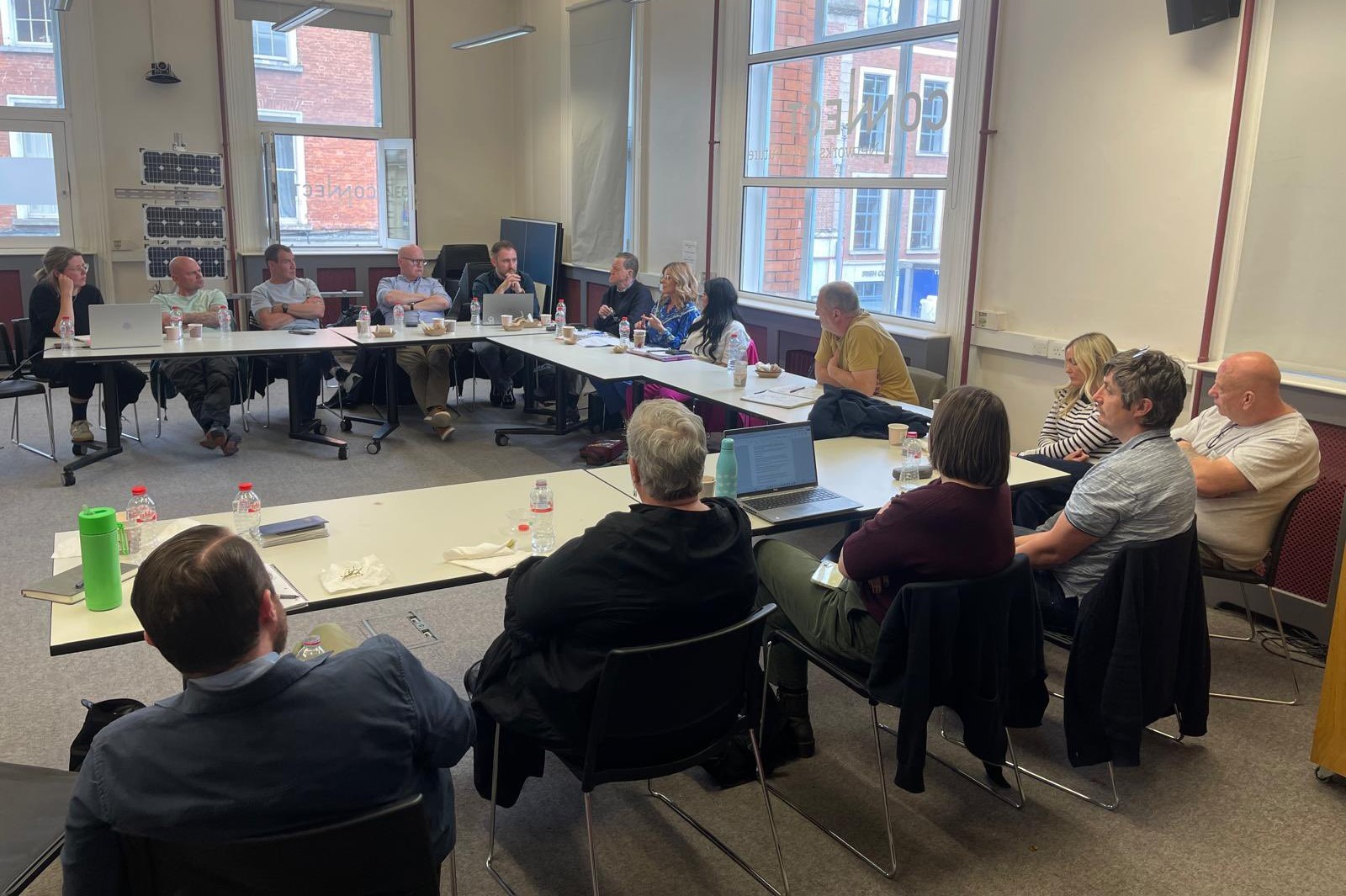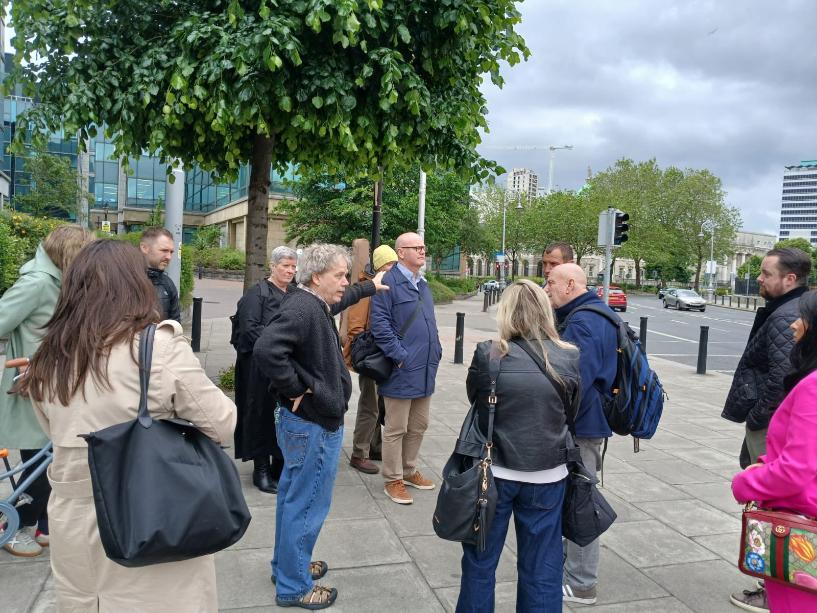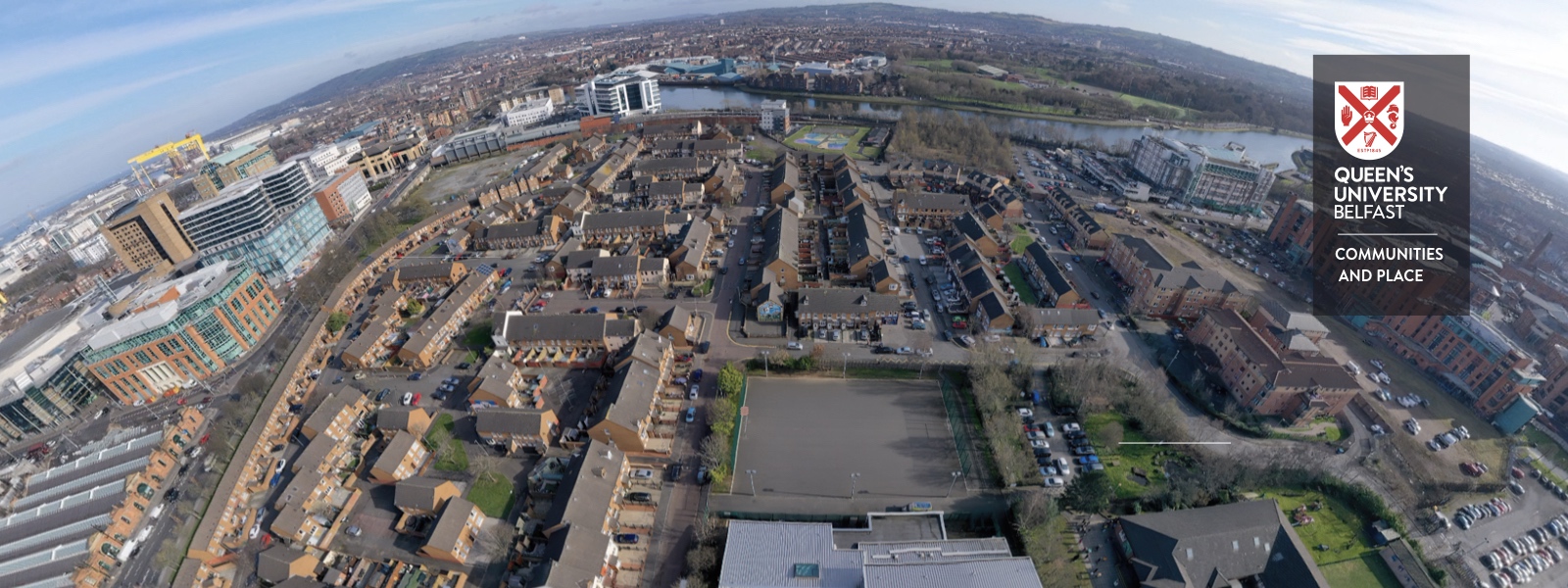Connected Communities: Amplifying Local Voices in Urban Innovation
The final workshop for QCAP’s Connected Communities project, dedicated to amplifying the voices of local communities in the context of urban innovation as our cities grow and change at an increasing pace, took place in Dublin on 11 June 2024.


By establishing a network of partner organisations and community researchers, the project aims to ensure that community perspectives are integral to the research and development of urban innovation projects, such as Smart Cities. This initiative, led by Queen’s Communities and Place (QCAP) and CONNECT, with colleagues from both Trinity College and the National College of Art & Design, Dublin, seeks to create a community research infrastructure that can equitably collaborate with city councils, academic institutions, and industry partners.
The project has engaged communities from inner-city Belfast and Dublin, specifically within their respective Smart/Innovation districts. These areas are designated for technological integration, making it essential that residents have a say in the technologies deployed and understand their functionalities. Urban innovation decision-making traditionally involves various stakeholders, including city councils, administrators, private sector interests, and statutory agencies. These entities typically have the capacity and networks to influence outcomes significantly. In contrast, grassroots community organisations often lack these resources and networks, leading to their exclusion from important discussions. Our project aims to bridge this gap by empowering community organisations to participate effectively in urban innovation dialogue.
The Connected Communities project featured three North-South workshops, designed to build knowledge, relationships, and future strategies among community representatives from Belfast and Dublin. The initial workshop, held simultaneously in both cities, introduced participants to urban innovation, Smart City agendas, potential community impacts, the importance of connected communities, and co-production research methods. The second workshop, hosted in Belfast, focused on building cross-border relationships and network development. Discussions highlighted the significance of community development infrastructure and the role of counter-infrastructures in addressing inequitable urban dynamics. The final workshop in Dublin was future-oriented, exploring long-term network sustainability and discussing the potentials, challenges, and concerns of creating a connected communities network.
Dr Gareth Robinson, QCAP dimension lead for education, summarised the rationale for the project:
“Having listened to grassroots community organisations and partners over the past couple of years, there is a clear appetite for positive change across inner-Belfast communities and to harness the potential of urban innovation. Yet, the capacity of these organisations and individuals is often spread thinly across multiple top-down initiatives and obligations, so much so that they find themselves managing local issues rather than addressing them. This group recognises the value of collaboration and that by sharing what they learn from their own communities, they can collectively make a real difference.”
The key learnings from these workshops highlight several critical issues. Community organisations possess a deep understanding of local challenges but often lack the resources to address them. There is a pervasive sentiment that funding often enables managing issues rather than addressing them, pointing to a lack of transformative investment. Short-term funding cycles hinder long-term strategic work, and community infrastructure is often mismanaged, with services and supports not aligning with community life. Moreover, there is a need for place-based pathways from early years to local employment opportunities that benefit the community. The consensus highlighted an ongoing need for an overarching plan to tackle poverty effectively.
The Connected Communities project has successfully strengthened connections between community organisations in Belfast and Dublin. As we move forward, we are excited to continue exploring options for a counter-infrastructure that offers working-class inner-city communities a more equitable footing in urban innovation agendas. This journey has just begun, and we are committed to ensuring that community voices remain at the heart of Smart City development.

